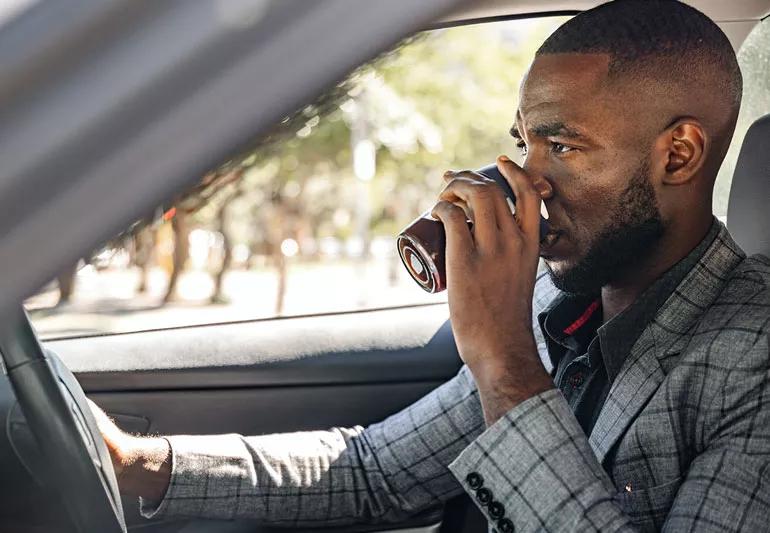The dos and don'ts of driving straight from a sleep medicine expert

Image content: This image is available to view online.
View image online (https://assets.clevelandclinic.org/transform/0957e85f-ae45-4937-960e-530509fdb549/tiredDriverCoffee-1186910798-770x553-1_jpg)
tired driver drinks coffee
We’ve all felt drowsy behind the wheel from time to time. But it’s incredibly dangerous. Preventing it from happening is obviously very important for your safety and everyone sharing the road.
Advertisement
Cleveland Clinic is a non-profit academic medical center. Advertising on our site helps support our mission. We do not endorse non-Cleveland Clinic products or services. Policy
While we may think there are tried and true ways to keep ourselves awake on the road, preventing the grogginess from ever happening is best.
Some common tactics people rely on to stay awake behind the wheel include talking on the phone, blasting the radio, eating candy or snacks, or rolling down the windows to let a gust of air in.
Some may resort to slapping or pinching themselves.
But if you’re drowsy, unfortunately none of these techniques will make you more alert. Especially because they happen after the sleepiness has already set in.
According to sleep medicine specialist Nancy Foldvary-Schaefer, DO, MS, more than a century of sleep deprivation research shows that humans can’t recognize severe sleepiness adequately under sleep-deprived conditions.
That means being prepared before you head out instead of doing the things you’ve already tried.
If you stock your car with gas-station foods like crackers or candy during your travels, the carbs and sugar will likely cause you to sugar or carb crash.
“Once they metabolize and the sugar spike in your bloodstream wears off, drowsiness can increase even more,” Dr. Foldvary-Schaefer says. “This only adds to the problem.”
Despite the desperate attempts, hitting or pinching yourself only causes some annoying physical pain and does little to awaken the part of your brain that needs to be stimulated back into being alert.
Advertisement
Here are some solutions that are more likely to prevent you from dozing off in the first place or can help if you’re aware enough to react.
“Of course, exercising regularly, getting enough sleep and eating healthy on a regular basis is always the best way to increase your energy level overall and prevent grogginess, dependency on caffeine, or carb and sugar cravings in the first place,” she says. “Especially when you’re driving.”
According to Dr. Foldvary-Schaefer if you regularly have trouble nodding off on the road you should see a sleep specialist to make sure it’s not a form of a more serious medical condition.
“You should also consider making lifestyle choices if you’re able to,” she says. “Riding a bike, taking public or rideshare transportation, or investing in a car that has visual, audio or vibrating alerts if your car begins to drift off are all great ways to keep yourself safer on the road.”
Advertisement

Sign up for our Health Essentials emails for expert guidance on nutrition, fitness, sleep, skin care and more.
Learn more about our editorial process.
Advertisement
Practical solutions for fighting flagging energy
If you have low B12 or a true deficiency, these shots can work wonders
Difficulty staying asleep at night or sleeping too much during the day are common issues
Rest up, but make sure you don’t oversleep — it can be as bad for you as undersleeping
Look for a firmer mattress and then make adjustments as needed
Blood pressure naturally dips when we sleep — and that dipping is crucial for a healthy heart
You’ll experience side effects of sleep deprivation within the first 24 hours
Listen to your child to help them identify their fear and name it, but don’t reinforce it
Type 2 diabetes isn’t inevitable with these dietary changes
Applying a hot or cold compress can help with pain
Pump up your iron intake with foods like tuna, tofu and turkey